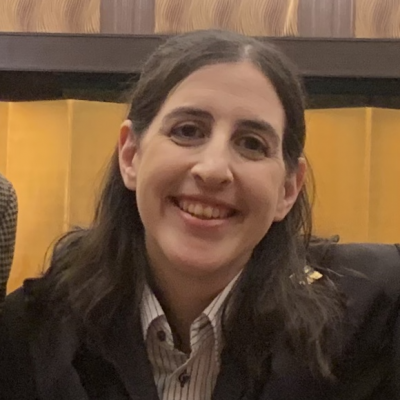Sessions / Zoom 10


An Overview and Evaluation of an Online Intercultural Education Course #1262
The global pandemic has limited student mobility, thus reducing intercultural learning opportunities. These sorts of learning opportunities remain crucial, however, for students to develop skills for intercultural communication. Many educational contexts are now faced with a need to provide intercultural learning by transforming curricula to online modes of delivery. The presentation outlines an online intercultural education course at Sojo University, Kumamoto. Originally established for face-to-face instruction, the course was converted to online delivery. Aims include fostering intercultural learning, developing awareness of diversity in English language, and supporting independent learning skills. In the presentation we outline the educational framework guiding the course, and provide examples of online activities including observations, surveys, posting opinions, and media research. For added context, we include qualitative data on how the framework, in its face-to-face application, was seen in self-reflective writing and self-evaluative end-of-course comments among 69 students. A content analysis using data-driven coding revealed some meaningful intercultural learning. Informal observations of learning using the online application suggest the depth of intercultural learning has been enhanced in the online course format. The presentation aims to offer teachers in other settings a potentially useful and relevant example of online intercultural education in home contexts.

Impact of virtual international service-learning on students’ intercultural competence #1255
Intercultural interactions have been mainly implemented in study abroad programs and researchers report the positive impact on the development of students’ intercultural competency (Jackson, 2008; Nakagawa 2009). Since international mobility has been restricted due to the spread of the pandemic, this study explores the possibility of improving students’ intercultural competency through a virtual international service-learning project.
The project was conducted with the collaboration of a volunteer organization in Vietnam. 12 English communication majors enrolled in my service-learning course participated in this project and engaged in interacting with Vietnamese university students as their English conversation partners. The interactions took place for 45 minutes in a small mixed group outside the class for one semester. During and after the project, students were required to write several reflective reports, which became the main source of qualitative data. A survey asking the image of Vietnamese was also administered before and after the project.
The results showed that students gained deeper understanding about Vietnamese culture and their image about Vietnam has become positive. They also acquired intercultural competence such as empathy, open-mindedness, and flexibility in addition to technological skills. In this presentation, suggestions for implementing successful virtual exchange will be also offered.

Online Exchange between Taiwan and Japanese University Students #1360
A 12-week online exchange was conducted between university students from Taiwan and Japan (N=75) with the purpose of raising cross-cultural awareness and communication skills. The exchange consisted of 8 Flipgrid activities, where students responded to one another through video recordings, and students also participated in 2 sessions of real-time small group conversation during class time. The purpose of this study is to examine the effectiveness of such online exchange in promoting cross-cultural awareness and student learning motivation. A survey was conducted at the end of the exchange. The feedback from the students indicated that 89.5% of them agreed that the communication skills they acquired through the online exchange were useful for their future. 84.5% of them felt that the exchange had increased their motivation to learn English. Two-thirds of the students expressed interests to take part in similar kinds of online exchange. In the written comments, some students felt a certain level of anxiety for having difficulty to communicate spontaneously in real-time small group conversation as compared to the recorded conversations using Flipgrid. In general, the online interaction was a positive experience for the majority of students.


The Coverage Comprehension Model: Matching learners with lexically appropriate meaning-focused materials #1222
The features of existing vocabulary levels tests and lexical profilers are based on convention and have limited construct validity (Schmitt, Nation & Kremmel, 2019). Recent research (much of it from Japan) questions the appropriateness of the construction of vocabulary level tests and lexical profilers when used with Japanese learners (Stoeckel, McLean & Nation, 2020). Thus, this presentation introduces meaning-recall (English to Japanese) and form-recall (Japanese to English) vocabulary levels tests (vocableveltest.org) which allow teachers to estimate their learners’ lexical reading, writing, or listening level. Teachers can select the wordlist (SKEW-J, NGSL, JACET, SUBTLEX, NAWL, AWL, TSL), word counting unit (lemma, flemma, word family) the band size (1000, 500, 250, 100 words), word band range of created tests, and the number of questions to represent each band. Teachers can also select their own questions, to create none frequency-based tests. After completing tests, students are presented with a graph showing their lexical profile. Further, teachers can select for students are receive feedback and correct answers on all responses. Teachers can download automatically marked responses, actually typed responses, the time taken to complete each question, and lexical profiles for individual students and groups of students. Importantly, to match learners with lexically appropriate materials, parallel lexical profilers are introduced (nwlc.pythonanywhere.com).

Possibility and Challenges of Online Language Exchanges #1271
The spread of Covid-19 has made it difficult for university students to study and travel abroad, which may affect students’ motivation to learn English negatively. Hoping to motivate first-year Japanese students to learn English in a class of a private university in Japan, I conducted five online language exchanges with the Japanese students and university students learning Japanese in the U.S. The Japanese students wrote a journal about the contents and feedback in English after every exchange. After the five exchanges, the students also answered a questionnaire survey with closed and open questions. The closed questions were made in terms of oral comprehension, production, and interactions from CEFR Companion Volume (Council of Europe, 2020), cultural understanding, foreign language anxiety, motivation, and pragmatic competence. The results showed that most of the students were able to improve their listening and speaking skills, understand different cultures, reduce foreign language anxiety, be motivated to learn English, and maintain a conversation. The open question also showed their positive opinion toward the exchanges. In the presentation, I will discuss the possibility and challenges of online language exchanges for the new normal era after Covid-19 based on analyzing the students’ journals and the questionnaire survey.

Accessing Local Communities, Services & Information #1376
In 2018, Japan had its largest foreign resident population increase ever after 7 years of continuous increasing numbers (Ministry of Justice Immigration Bureau, March 2019). With the 2020 COVID-19 pandemic, the need for fast, accurate information for daily life became more transparent. This also greatly influences foreign resident language teachers in Japan. An online survey via snowball sampling was conducted from September 2020 through SNS and acquaintances who were mainly English teachers in Japan to participate in and reach out to others to request them to fill out the survey since of all foreign residents those with English ability would mostly likely have the greatest support and access to services available. 39 (mainly language teachers) responded. Survey questions were based on: (1) What kind of and where can public information be easily accessed? (2) Where do respondents want to find this information? (3) How easily can they join Japanese language classes and how was the quality? Respondents indicated that the most useful information they gained was through people they trusted to know about Japan (24), expat websites (17), and SNS (13) while they preferred that it be made available on local municipality websites (26).



The IVE Project: Supplementing Intercultural Awareness with the Student-Generated Survey #1324
The International Virtual Exchange Project (IVEProject) (https://iveproject.org/) offers two eight-week exchanges each year affording EFL students the opportunity to interact with peers from other countries. In 2020 over 6000 tertiary-level students from twelve countries joined. This presentation will focus on a supplemental activity, the Student-Generated Survey (SGS), from creation and implementation to classroom application. The SGS aims to increase student engagement by allowing them to submit questions to all participants. Approximately fifteen questions are selected to create the SGS which are made available to participants. The large number of responses (over 1500 in the spring exchange), separated by countries, offers students a unique opportunity to discuss and reflect upon the similarities and differences of their international peers. This presentation will outline qualitative and quantitative data regarding student perceptions of the activity. Students reported that results from this activity helped them understand they had more similarities with their international counterparts than they expected. It was also found that student use of the SGS results differed by country. The IVEProject is maintained with financial assistance from a Japanese government Kaken grant and is therefore free-of-charge.

Perceptions of Online Learning’s Effectiveness #1328
This study explores the perception of the effectiveness of group writing and group discussion activities used in face-to-face lessons adapted for online learning. The 68 participants in three different classes had a minimum TOEIC score of 500 and provided feedback on a regular basis. Ranking, open-ended, and closed-ended questions were used for the polls at the end of some lessons, a monthly survey of the classroom activities, and a final questionnaire covering the entire course. The results indicated that the majority of students preferred to work alone and perceived any kind of group work to be better suited for face-to-face course delivery versus an adapted format for online course delivery.

Exploring Loanword Usage in Japan and France #1268
Japan is known to be highly permissive of the use of loanwords in Japanese, and this has resulted in lexical borrowing on a scale rarely seen in recent years. France has adopted a contrasting position, going so far as to enact a law to prohibit the use of foreign languages in advertising and a variety of other contexts in order to protect the French language. Loanword usage can have far-reaching implications not only for the languages in which the loanwords are used, but also for learners of the languages from which the loanwords originate. Some studies have argued that loanword cognates can serve as an invaluable resource for language learners, whereas others have pointed out that loanwords can negatively impact grammatical and pragmatic competence when learners perceive loanwords and their source words to be similar in meaning and usage. This presentation compares loanword usage and language policy in Japan and France and considers whether the language policy and sociolinguistic environment of each country have an effect on the proficiency of English language learners.

FREE international vocabulary study tournament for your classes #1522
Promotional Visit the Lexxica pageA FREE Team Challenge Vocabulary Study Tournament will start on June 14th and end on July 25th. Winning teams will receive virtual trophies and merchandise awards. Thousands of students in hundreds of classrooms from seven countries have participated in the prior Team Challenge tournaments. Participating students will learn from 1,500 to 5,500 new high-frequency words during the six-week tournament period. Best of all, because high-frequency words occur so often in both authentic and inauthentic English (eg graded readers) your students' newly learned words are highly likely to be repeated, reinforced, and internalized through multiple near-future encounters in your classroom and beyond. All participating students will be provided with 8 weeks of free access to the WordEngine online mobile vocabulary study application. All participating teachers will receive free progress reports and tournament updates for their teams. This presentation will answer your questions about the FREE Team Challenge Tournament and take reservations from those who wish to participate.

BizCom SIG Forum #1225
The Business Communication SIG is looking forward to your participation in our 2021 forum. We would like to extend an invitation to both members and non-members alike who have an interest (or career) touching the theme of language instruction or skill training in the business domain. As a pretty informal event, it's a great way to socialise and network with others in your field, get to know some of the SIG's officers and members a little better, and to chat about any recent trends and issues of concern or interest. For example - How has your teaching changed over the last few years? How has this affected you and your learners/customers? Are the shifting modes of communication conducive to positive WTC? And so on. So be sure to grab a tasty brew, pull up a comfortable chair, and see you there!

Vocabulary Lists Need to Consider Polysemy #1358
This presentation is a recommendation for a pedagogical practice as well as a basis for future research. Word frequency lists (BNC/ COCA) are often used to teach vocabulary words. These word lists often based on lemma and do not contain much information on the word. This presentation argues that word lists should contain definitions and contextual examples of more than one sense of a word. This is because learners will encounter a wider range of context such as new senses and collocates as they become more proficient in another language (Bogaards, 2000; Schmitt, 2014; Wesche & Paribakht, 1996). These new senses of the word can be considered polysemous. Polysemy can be defined as a word with multiple meaning senses that are semantically related (Hoshino & Shimizu 2018). Furthermore, a word with polysemous senses is usually believed to have a core sense of the word (Csabi, 2004; Huang 2004; Khodadady and Khaghaninzhad 2012; Morimoto & Loewen 2007; Taylor 2012; Verspoor & Lowie 2003). The problem of polysemy can become even more complex when it comes to L2. Jiang (2000) classifies polysemous words as falling into his false friends category where there is only a slight overlap between the L1 and L2 meanings of the word. This makes it difficult for learners to create a distinct sense of the word in their mind. This type of ambiguity could prevent students from being able to distinctively understand the meaning of the word. This can be disadvantageous to learners as they may encounter unfamiliar meaning senses on tests like Eiken and TOEIC. If learners are not aware of alternative meanings of the words their scores may negatively be affected.

What are stonks? Please ELI5 #1382
TL;DR? Here is the ELI5: Language has always been fluid. The speed of language change has increased with each advance in communication technology: the printing press, radio, movies and TV. The internet has connected people worldwide and possibly has made the single largest single impact on English since Shakespeare added 1,700 common use words to the language. This presentation will cover some notable and curious changes in vocabulary propelled by the internet. Some changes in language, brought about by online gaming chat, tumblr, Facebook, and other popular sites have spread so far (and fast) that they surpass classification as slang and have become colloquialisms. This presentation will have a strong focus on vocabulary introduced into popular usage by Reddit (the world’s most popular social news aggregator website). Reddit has added dozens of words to popular usage but in January of 2021, the world may have witnessed the fastest ever changes and additions to the English language. Because of the GME (GameStop) and Wall Street saga going viral, literally overnight, millions of people worldwide began buying stonks and making tendies.

Self-marking form-recall and meaning-recall vocabulary tests #1250
The limitations of existing levels tests inhibit them from meeting their stated purposes (Stoeckel, et al, 2020) as they are based on the word family (McLean, 2018), utilize a meaning-recognition format (McLean et al, 2020), and represent 1,000 words with too few items (Gyllstad et al, 2020). Thus, vocableveltest.org was created. Test administrators are able to base online vocabulary tests on various lists (BNC/COCA, COCA. NGSL. JACET, SUBTLEX, EVKS-J), various word counting units (lemma, flemma, word family), various word band sizes (100, 500, 1000), and various sampling rates (10/1000 to 1000/1000). Students can be provided with feedback on completed items, along with a profile of their lexical knowledge. Test administrators can download automatically marked dichotomous data, actually typed responses, and the time taken to mark each item, for individual or groups of students.